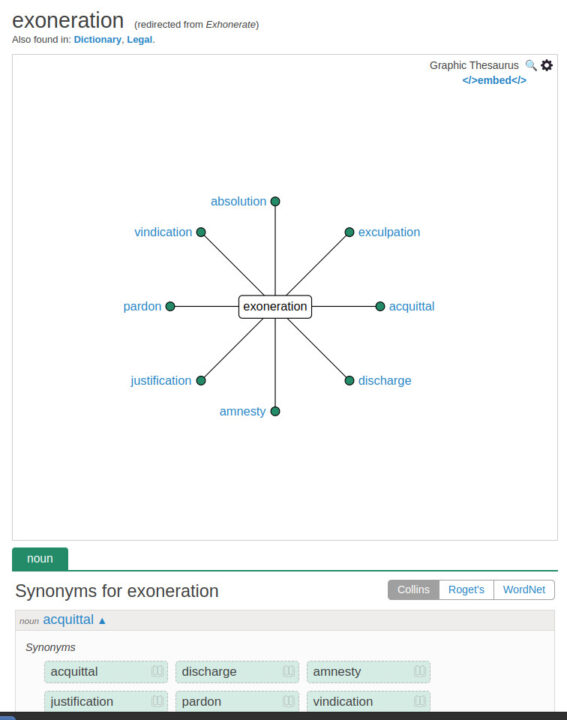House Bill 89 provides that the general court may grant a posthumous exoneration and annulment in a case where, over time, the manifest injustice of the law or policy for which the person was convicted becomes evident.
We want to thank Mike Sylvia for this Contribution – Please direct yours to Editor@GraniteGrok.com.
You can review our ‘Op-Ed Guidelines‘ on the FAQ Page.
The bill grants a posthumous exoneration and annulment of the convictions of Willard Uphaus and Eunice “Goody” Cole. I know nothing about Uphaus or Cole, and I don’t need to know anything about them to know this is an unconstitutional bill. But before I get to the constitutionality of the bill, a sane person would have one very serious question about the bill.
2 New Section; Posthumous Exoneration and Annulment. Amend RSA 651 by inserting after section 5-b the following new section:
651:5-c Posthumous Exoneration and Annulment. In cases where the judgment of history is that an individual now deceased suffered an unjust criminal prosecution, the general court may, notwithstanding the provisions of RSA 651:5, acknowledge the injustice and posthumously exonerate and annul any arrest and conviction of the individual to correct the historic record. Such legislative action to posthumously remedy manifest historic injustice shall not entitle the heirs or the estate of the person who suffered the injustice to recover damages from the state.
Whose version of history will be used to determine the wrongs of some distant past action?
Sadly, this garbage passed the committee 20-0.
Now to the constitution. It is clear that someone looked at the constitution and found that the power of pardon is exclusively granted to the governor and council in Part II, Article 52.
[Art.] 52. [Pardoning Power.] The power of pardoning offenses, except such as persons may be convicted of before the senate, by impeachment of the house, shall be in the governor, by and with the advice of council: But no charter of pardon, granted by the governor, with advice of the council, before conviction, shall avail the party pleading the same, notwithstanding any general or particular expressions contained therein, descriptive of the offense or offenses intended to be pardoned.
We know the committee saw the problem because they amended the bill to include:
651:5-c Posthumous Exoneration. In cases where the judgment of history is that an individual now
deceased suffered an unjust criminal prosecution, the general court may, notwithstanding the provisions of
part II, article 52 of the New Hampshire constitution and RSA 651:5, acknowledge the injustice and
posthumously exonerate any arrest and conviction of the individual for the sole purpose of correcting the
historic record. Posthumous exoneration under this section shall not be considered a pardon or annulment.
Such legislative action to posthumously remedy manifest historic injustice shall not entitle the heirs or the
estate of the person who suffered the injustice to recover damages from the state, nor shall it be deemed to
create any other legal right or remedy in any person as a result of such posthumous exoneration.
The committee considers (and perhaps the full House should they vote for this) that the constitution to be Not With Standing.
not·with·stand·ing
(nŏt′wĭth-stăn′dĭng, -wĭth-)
prep.
adv.
conj.
Somehow the legislature would claim to have authority ABOVE the constitution. Sure, they try a little fine lawyering by adding that this shall not be considered a pardon. The dictionary knows better:
Not one in 20 on the committee had the strength to stand against this Marxist bit of Newspeak. Shameful.
Mike

